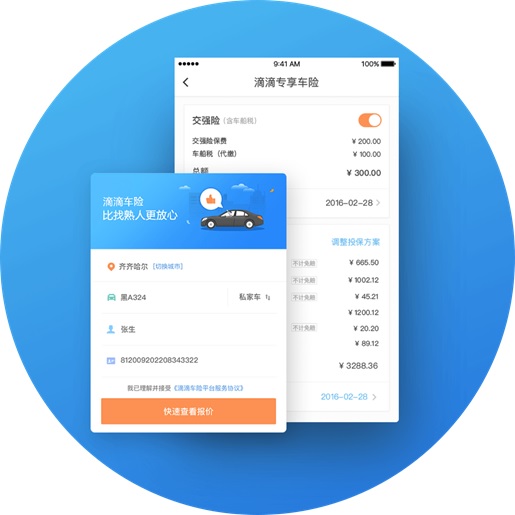Ridesharing: DiDi Chuxing Adds Financial Services

FACTS
- The Chinese ridesharing company introduces a range of financial services, for their users and car drivers.
- Offer’s content:
- Car insurance
- Personal
- Collaborative health insurance
- This offer is accessible for their ridesharing mobile app, as well as from a dedicated app called DiDi Finance.
- Tests were conducted in 2018 in a dozen Chinese towns.
DiDi: KEY FIGURES
- 550 M users
- 31 M drivers
- Market share in China: 90%
CHALLENGES
- Valuing data: DiDi analyses their users’ location-related data (at home, at work, during their free time) to feature tailor-made offers. This data should provide the ridesharing company with a means to assess how much the users earn as well as associated risk levels. They may then send customised financing or insurance offers. This valuation highlighted for financial partners also provides DiDi with a new source of revenue.
- Securing drivers’ loyalty in a challenging context: Ridesharing companies in China have been applied tougher regulatory requirements, making it harder for them to attract more car drivers. This considered, DiDi believes that an offer for self-employed workers might help secure their own car drivers’ loyalty, providing them with easier access to financial services.
MARKET PERSPECTIVE
- Staring January the 1st this year, the Chinese government applies new sets of rules to ridesharing companies: they must hire local car drivers (instead of migrant workforces, as was the case until recently), drivers have to pass an examination, be licensed as “driver” and each of their commercial vehicle must also be approved. These measures should logically cause the number of drivers to drop.
- DiDi, for their part, faced a difficult year in 2018: two passengers were killed by one of their drivers, which led Chinese authorities to implement more restrictive measures. The group would have lost half a billion dollars throughout H1 2018.
- Other ridesharing companies are also betting on diversifying their offers: Grab, for instance, unveiled several financial services (payment, insurance, micro-credit offers, etc.). In India, Ola already relies on data from their drivers’ rides to propose instant credit offers with their banking partner ICICI Bank.
